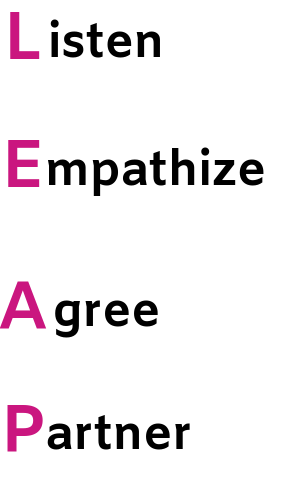Of those diagnosed with bipolar disorder or schizophrenia, an estimated 40-60 percent also have a condition called anosognosia, a neurological phenomenon where the patient is unaware and/or unable to accept his or her neurological deficit or psychiatric condition.
We encounter these clients when they quit taking their medication, claiming that they are not sick. They may deny past behaviors, tell us that there are good reasons for their actions or blame others for false accusations. As we try to convince them of their need for medication through logic, or by the authority of medical providers, they become defensive, agitated and frequently withdraw from services.
Pete Early, a well-known mental health reform advocate, wrote about personal family experiences with anosognosia in his 2007 book, “Crazy: A Father’s Search Through America’s Mental Health Madness”.
He said, “It often is frustrating for us – parents — to understand why our children will not take anti-psychotic medication, or take it only until they get better and then stop. The remedy seems so clear-cut to us, so simple – and watching them experience the mania, depression, and delusions that happen when they become psychotic is heartbreaking and horrific.”

What can we do to help people who are in denial about their need for help? Early turned to the work of respected mental health champion, Dr. Xavier Amador for a solution. Amador founded the LEAP (Listen-Empathize-Agree-Partner) method for developing partnership and trust with those experiencing anosognosia and published a book about his experience in 2012, “I’m Not Sick, I Don’t Need Help”. Dr. Amador’s method was influenced by thirty years of experience with families and patients who lacked insight, and a personal relationship with his brother who was diagnosed with schizophrenia. Amador’s method has been taught at hundreds of LEAP seminars and backed up by twenty-five years of clinical research supported by the NIMG, Stanley Research Foundation, Elizabeth K. Dollard Trust, American Psychiatric Association and the National Alliance on Research on Schizophrenia and Depression (NARSAD, BBRF).
Dr. Amador’s LEAP method includes Listening, Empathizing, Agreeing and Partnering. The first and most important step is reflective listening; letting the patient know that you hear what they are saying, without agreeing or disagreeing, but reflecting back exactly what they told you and verifying the content without changing the meaning. If the patient is having delusions, validating their experience as being important will not increase or strengthen the delusions. This is not the time for reality testing.
The second step is empathizing. Once the client knows you are listening to them, you can empathize with their experience so the client will feel understood and respected. He/she will be less defensive and more open to listening to your opinion.
The third step is agreeing. Find what you can agree with and try to focus on the client’s view of the problem. Do not offer your opinion until asked for it. You may remind the client “It’s your opinion that matters.” The client may then be willing to work together on the problem as the client sees it.
The fourth step of LEAP is partnering. Partnering is about developing trust. Amador’s book, “I’m Not Sick, I Don’t Need Help” gives simple examples and explicit details on how this method can be used to improve communication and strengthen the relationship. Amador explains that personal relationships are more important to the client than “logic” or medical expertise.
LEAP method promotes a relationship of mutual respect and trust and may also improve the likelihood that the patient will cooperate with treatment. Family members of people who struggle with anosognosia who have read this book and tried the LEAP strategies have expressed their gratitude for having useful guidelines to maintain communication and provide support for their loved ones through their journey of recovery.
Amador explains, “LEAP focuses on transforming the relationship first. You do not win on the strength of your argument; you win on the strength of your relationship. With LEAP, your opinions are no longer like a lot of hot air and are more like the wind in a sailboat’s sails that moves the person where you want him—to safe harbors.”
Dr. Amador is scheduled to be a presenter at the NAMI National Convention to be held in Seattle, WA June 12th-22nd.
About the author: Evelyn Bowen-Crawford, MSW, LICSW, CDP is a Clinician/Case Manager at Sound